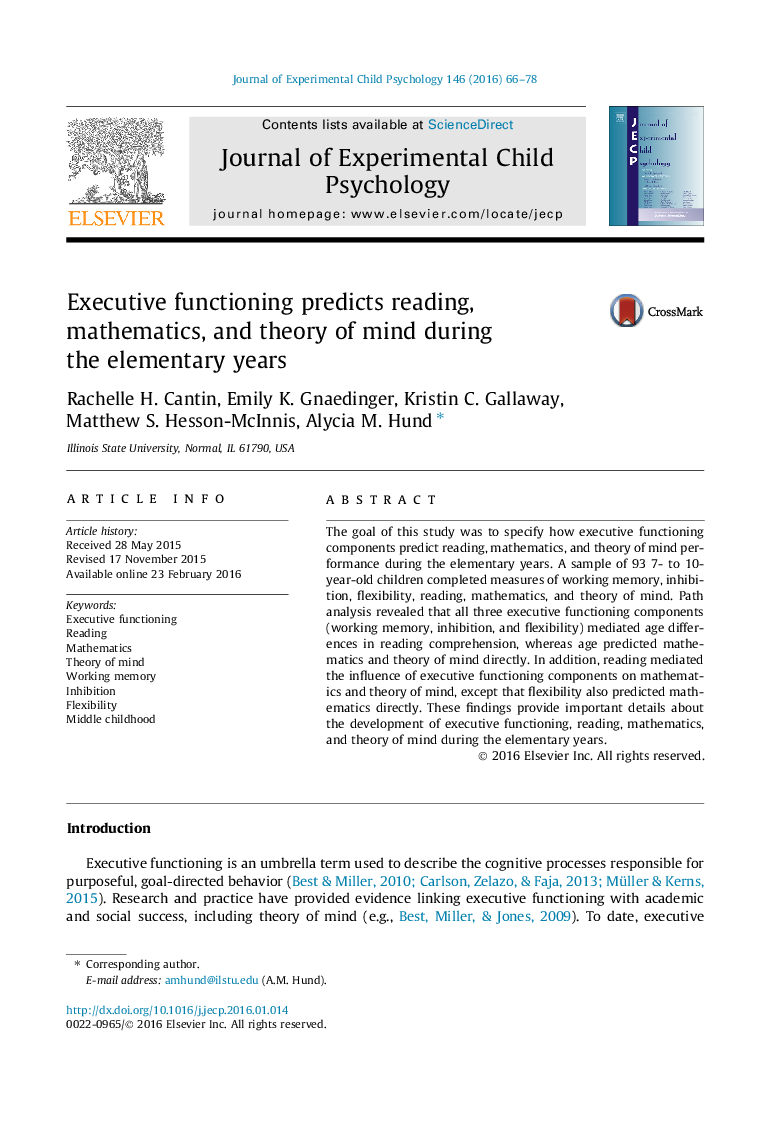| Article ID | Journal | Published Year | Pages | File Type |
|---|---|---|---|---|
| 917922 | Journal of Experimental Child Psychology | 2016 | 13 Pages |
•Executive functioning, reading, math, and theory of mind improved during the elementary years.•Working memory, inhibition, and flexibility mediated age differences in reading comprehension.•Age predicted mathematics and theory of mind directly.•Reading mediated the influence of executive functioning on math and theory of mind.•Flexibility predicted mathematics directly.
The goal of this study was to specify how executive functioning components predict reading, mathematics, and theory of mind performance during the elementary years. A sample of 93 7- to 10-year-old children completed measures of working memory, inhibition, flexibility, reading, mathematics, and theory of mind. Path analysis revealed that all three executive functioning components (working memory, inhibition, and flexibility) mediated age differences in reading comprehension, whereas age predicted mathematics and theory of mind directly. In addition, reading mediated the influence of executive functioning components on mathematics and theory of mind, except that flexibility also predicted mathematics directly. These findings provide important details about the development of executive functioning, reading, mathematics, and theory of mind during the elementary years.
